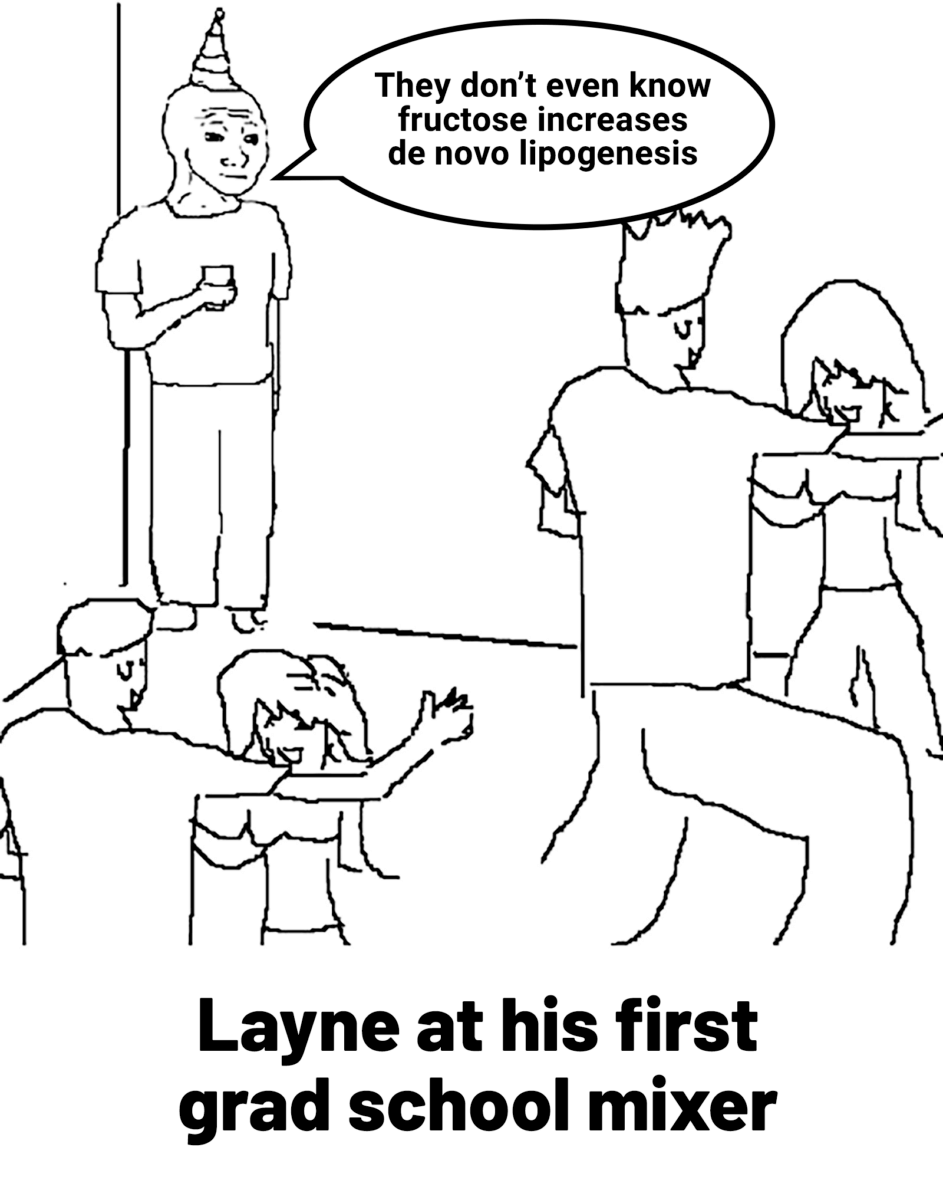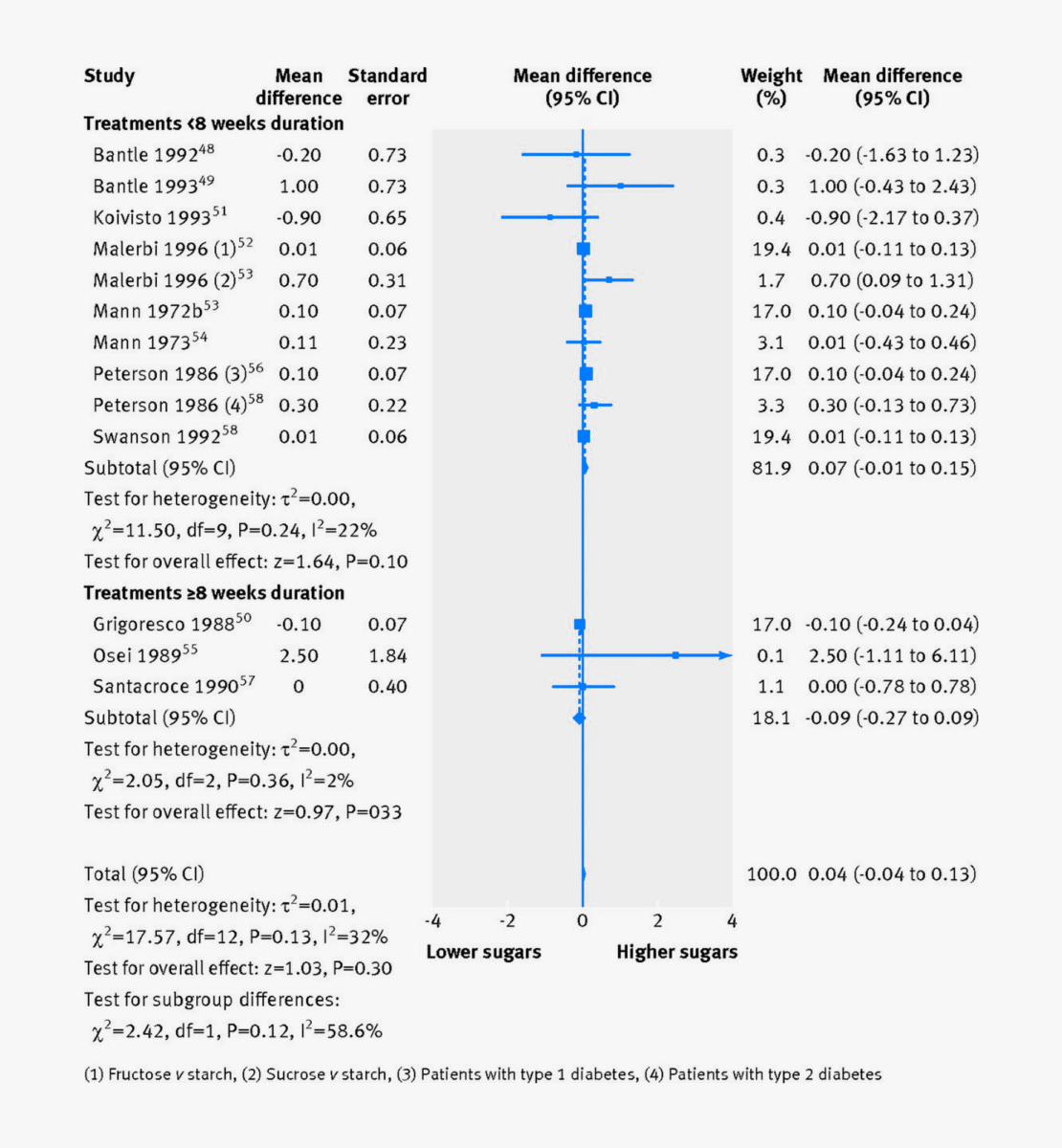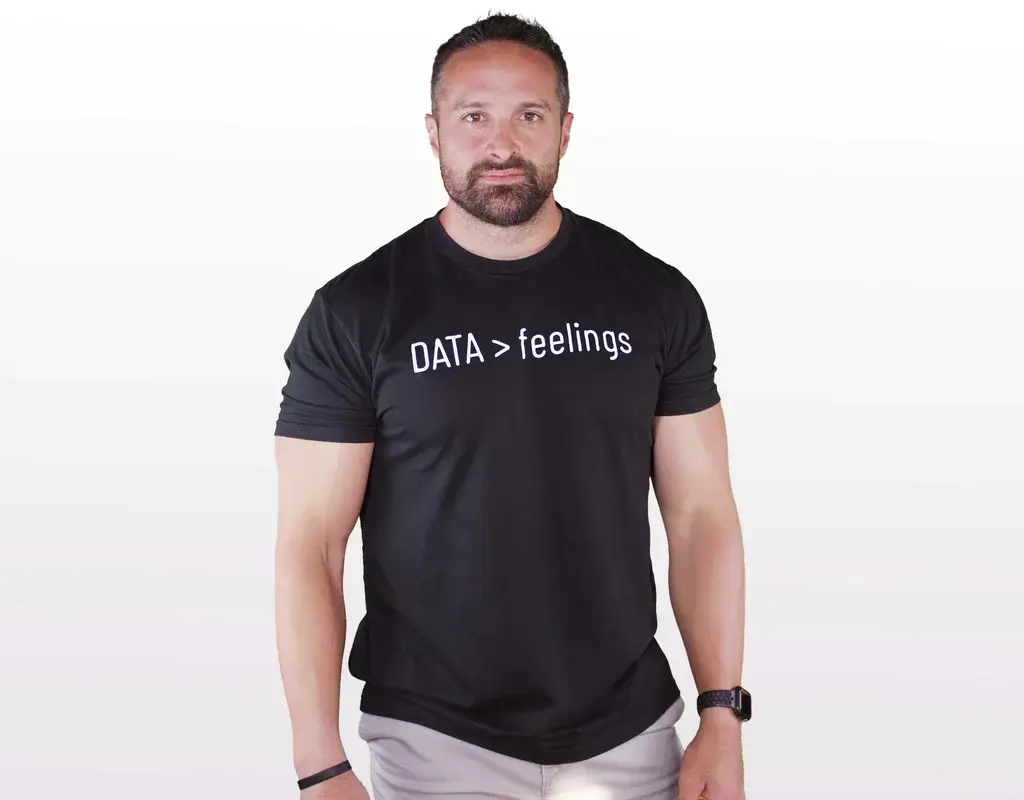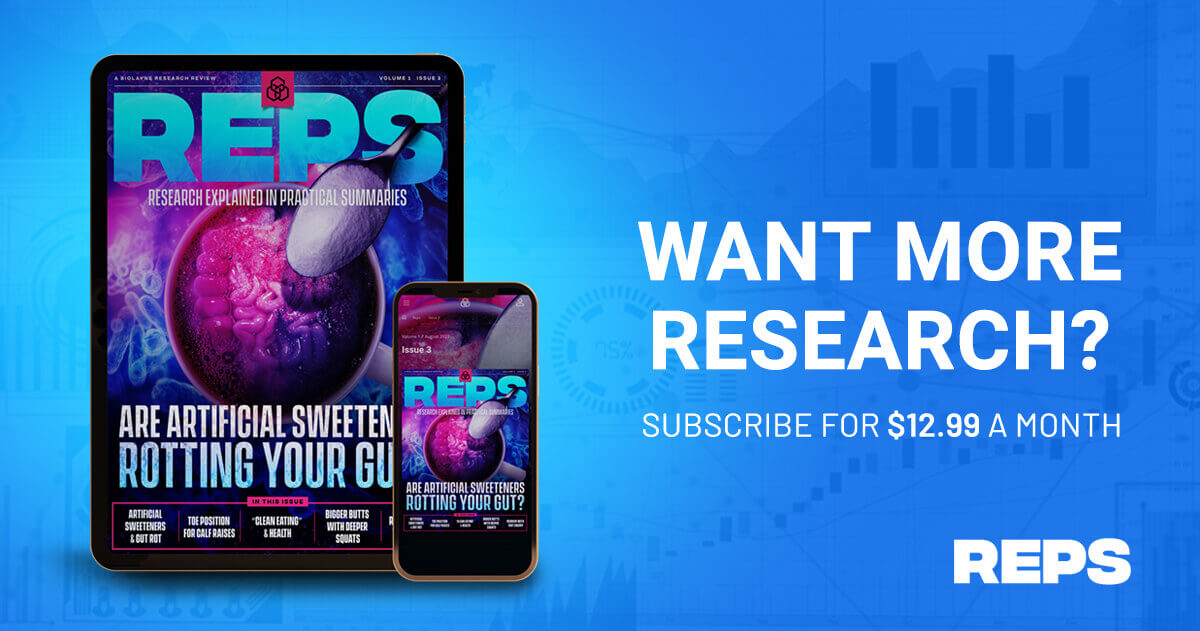Why it’s UNLIKELY that sugar caused the obesity epidemic
I’m sure that title got your attention. Before you proceed further, I want you to conduct a short exercise in logic with me. Regardless of what your beliefs about sugar are, ask yourself “am I willing to change my mind if presented with sufficient evidence?” If you are not, then I’d probably say don’t waste your time reading any further, though you probably wouldn’t read this anyway. If you are willing to change your mind based on evidence, ask yourself how much evidence do you require to change your mind? If you were shown multiple lines of evidence from epidemiology, incredibly tightly controlled animal studies, human randomized controlled trials, as well as meta-analysis and systematic reviews would that be sufficient? Please keep that in mind as we move forward.
Trying to explain how Layne is owned by Big Sugar

Disclaimer: Many people have claimed that I am bought and paid for by the sugar industry. Of course, this is simply an intellectually lazy tactic designed to distract from the actual evidence. However, they will cite the fact that I have posted pictures of myself with shipments of Monster energy drinks (ironically I only drink the zero sugar Monsters) as evidence that I’m paid off by ‘big sugar.’ Apparently posting a selfie with a box of monsters >>>> monster is owned by coca-cola >>>> coca-cola is big sugar >>>> Illuminati?
In all seriousness, Monster offered to send me free products back in 2017 after I’d already been using their product (and paying for it) for 3 years. I said ‘sure’ and have received free shipments of Monster zero sugar energy drinks from 2017 to 2021. I’ve never been paid by Monster or Coca-Cola to endorse any products. In fact, my PhD research was funded by the Egg Nutrition Center, National Dairy Council, and National Cattleman’s Beef Association. I received over 100k in funding from these organizations and if anything, these organizations exist in opposition to the sugar/grain industry. If I could be ‘bought’ who do you think I’d be more loyal to? People who gave me over 100k for my research… or people who send me free drinks? I’ll let you decide. Now with the conspiracy nonsense out of the way, let’s get to what the actual research says shall we?
The Case Against Sugar

When I first arrived at graduate school at the University of Illinois in August of 2004 I thought I had a lot of things figured out. There were certain things I ‘knew’: 1) I needed to eat 8 meals per day to be anabolic 2) sugar was bad and 3) high fructose corn syrup (HFCS) was the most fattening substance known to man. At least, these were the things I believed. Much of this belief was formed from my participation in bodybuilding contests. I competed in my first show in 2001 and the bulk of my knowledge about nutrition came from reading bodybuilding magazines and internet message boards. Fortunately, I had done a ‘hard science’ degree for my undergraduate degree (Biochemistry) which gave me a really good background to read research and evaluate claims. That said, I never really looked much into sugar and HFCS simply because I was so convinced that they were fattening independent of caloric content that I figured it was a waste of time to dig deeper into the research. It wasn’t until a few years later (after graduate school had beaten the idea of always needing a citation to back up a claim into me) that I started critically evaluating the evidence around sugar and HFCS. When I first arrived in graduate school however, everything I’d ever read convinced me that this wasn’t even a topic for debate, it was case closed. While people on bodybuilding message boards might argue over different diets, supplements, and training style, the one thing no one argued was how terrible sugar and HFCS were. Massive doses of glucose however, were apparently ok when consumed ONLY after a workout though.
It had also been propagated through popular diet books written by Gary Taubes that sugar was fattening regardless of calories. 1 2
Rise in obesity is correlated with increased sugar intake
While I was convinced that sugar and HFCS were horrible for you and very fattening, it wasn’t like there was no evidence to support that idea. The increase in sugar consumption up to that point tracked very tightly with the increase in obesity. As you can see from this graph (found on healthline.com), obesity was relatively rare until the early 1900s and then took a sharp upturn in the late 1900s that also correlated with an increase in sugar intake.
In particular, this increase in obesity was very strongly associated with increased consumption of HFCS which had replaced regular sugar as the sweetener for most sugar sweetened beverages (SSBs) by the late 1900s. In fact, the consumption of SSBs (and HFCS by default) was even more strongly associated with the increased prevalence of obesity than other forms of sugar. This led some nutrition scientists to hypothesize that there was something about HFCS that was inherently fattening. 3 Keep in mind however, that correlation cannot prove causation. In fact, many things can be very tightly correlated that have absolutely NOTHING to do with each other. Check out this article showing various insane correlations of things that quite obviously do not cause each other: https://www.tylervigen.com/spurious-correlations Proving causation requires controlled feeding trials, preferably randomized controlled feeding trials. More on that later.
At this point, I think it’s important to discuss exactly what HFCS and ‘sugar’ are rather than discussing them in nebulous terms. Sugar can mean many things. There are several categories of sugar including monosaccharides and disaccharides. Monosaccharides are single sugars like glucose, fructose, galactose, etc. Disaccharides include two sugar molecules linked together by a chemical bond and include sucrose (glucose-fructose), lactose (glucose-galactose), maltose (glucose-glucose), etc. When we say ‘sugar’ typically we are referring to sucrose which is table sugar. Sucrose is 50% glucose and 50% fructose. HFCS on the other hand is approximately 45% glucose and 55% fructose. Therefore it’s important to note that when we say ‘high fructose corn syrup, we are really only talking about a 5% increase in fructose content. Is that enough to cause obesity independent of the calories contained in the substance? Read on. Either way, it’s important to note that this is a relatively small difference and any independent negative effect from HFCS would also likely occur with sucrose.
We also need to discuss ‘independent’ vs. ‘dependent’ risk factors when we are discussing the risk of obesity. An independent risk factor means that the food/molecule itself is a causative risk factor independent of anything else. That means there is something inherent to that particular molecule that increases the risk, whereas a dependant risk factor means that a molecule exerts its effects on risk through some intermediary. In the case of this article, what we are addressing is whether or not sugar and HFCS are independent risk factors for causing fat gain and obesity INDEPENDENT of caloric intake.
Fructose as the key player in the development of obesity?
To that end, there were several animal experiments that supported the hypothesis of sugar & HFCS being fattening independent of calories. 4 5 6 These studies however, used supraphysiological doses of sugar/HFCS/fructose up to 60% of total daily calories! Interestingly, much of the research from this animal data seemed to focus on the fructose moiety of sucrose/HFCS as being the driver of these obesogenic outcomes. The hypothesis for fructose being particularly lipogenic centered around it’s unique metabolism by the liver. While fructose’s chemical composition is the exact same as glucose (6 carbons, 12 hydrogens, and 6 oxygens), glucose is a 6 carbon ring (hexose ring) whereas fructose is a 5 carbon ring (hexose). Due to these differences in chemical structure, they are metabolized differently. Whereas glucose can be metabolized by any tissue, whereas fructose is almost exclusively metabolized by the liver. 7 Of particular interest to researchers was the effect of fructose consumption on de novo lipogenesis (DNL), the synthesis of fatty acids in the liver from carbohydrate substrate, in this case fructose. 8 Fructose consumption has been shown to increase DNL to a greater extent than sugars like glucose and this led some researchers to implicate it in the development of obesity and nonalcoholic fatty liver disease (NAFLD). 9 10 11 Further, fructose has been shown to stimulate genes like SREBP1, which increases the synthesis of fatty acids and DNL in the liver. 12 It was hypothesized that this unique effect on liver DNL synthesis of fats could make fructose an independent cause of obesity and by default, the sugars that contained it (sucrose & HFCS).
In fitness circles, I can recall people saying not to consume fructose since fructose can’t be stored as muscle glycogen. 13 Further, short term fructose consumption does not increase leptin levels. 14 Leptin is a hormone that is thought to be critical in the regulation of body fat levels. Briefly, reduced leptin levels increase hunger, decrease energy expenditure, and animals that are leptin knock outs become absurdly obese. Glucose, but not fructose ingestion has been demonstrated to raise leptin levels. 15 This was yet another strike against fructose as a possible obesogenic agent.
The Demonization of Fructose
It didn’t take long for researchers, charlatans, and lay person’s alike to hone in on fructose as the major cause of obesity, diabetes, fatty liver, even cancer. There have been quite a few books and popular websites dedicated to the evils of fructose and it impacted the public’s opinion quite significantly. 16 17 18 19 20 21 22 All it took was stringing the aforementioned logic together and it was case closed on fructose. This was where I was at with fructose and sugar when I entered graduate school in 2004. I even avoided fruit because fructose couldn’t be stored as muscle glycogen and it didn’t raise leptin. In my mind, it was worthless. Additionally, I felt HFCS must have been independently fattening in order for it to receive so much attention in the scientific community.

Then when I got to grad school, something funny happened. I was at a mixer (fancy way of saying party for scientists where everyone drinks a bit too much) for the University of Illinois grad program and I was listening to a conversation between Dr. Manabu Nakamura and another professor about HFCS. The other professor said he was convinced that HFCS was fattening. Dr. Nakamura said “yes, but only in the context that it is hyperpalatable and increases the calorie load.” (I’m paraphrasing since it was 15 years ago but that was very close to what he said, if not identical). I was SHOCKED.
Now, keep in mind that Dr. Nakamura did some of the early animal research on fructose’s effects on obesity, SREBP1, and fatty liver. 23 24 This was the LAST thing I expected him to say. The other professor brought up the studies in animals showing unique effects of fructose on fat gain and liver fat accumulation. Dr. Nakamura countered that only with very large, supraphysiological intake of fructose were these effects observed and he felt it was unlikely that it would have any effect in the physiological range in humans other than just being a source of hyperpalatable calories. He also pointed out that HFCS was not all that different from sucrose and the data to that point had failed to show that sucrose was fattening independent of calories.
Questioning My Beliefs
This conversation eavesdropping became one of many encounters with my own bias during my grad school tenure where I had the option to evolve my thinking and examine the data or I could continue to feed my bias and risk cognitive dissonance. I started really looking into the data on sugar and fructose and was shocked by what I found… NOTHING. I couldn’t find one study showing differences in fat gain or loss between high and low sugar conditions when calories were equated in humans… not one. The few studies I did find where calories were equated showed no difference (we will get to some of these studies later). At that point, I put down a mental note that I was probably wrong about sugar and moved on from it. After all, sugar and fructose were not the focus of my PhD and were not that interesting to me. I was focused on getting JACKED and taking a deep dive into the world of protein metabolism. It wasn’t until I graduated and was coaching people full time for nutrition did the sugar thing come back up. I couldn’t believe how many people were convinced that sugar was more fattening than other nutrients even when equating for calories. I’d wager over 75% of the fitness industry held this belief and I didn’t find much difference outside the industry either. Meanwhile I had ‘tested’ it on myself by getting shredded and winning a pro bodybuilding competition while still consuming over 50g of sugar per day on the majority of days of my bodybuilding prep. It left me with many questions.

If sugar really was so inherently fattening, why was I able to get so lean while still consuming a decent amount of it? Furthermore, all carbs essentially break down to sugars during digestion, so why was isolated sugar so special? There was some speculation that the glycemic index (GI) of foods was important to pay attention to, specifically that complex carbohydrates tended to not raise blood sugar as quickly as high GI carbohydrates. This led to more questions though, as fructose is low GI but wasn’t fructose supposed to be more fattening? 25 It didn’t add up.
Additionally, I looked back through the literature and STILL could not find any studies to support the hypothesis that sugar or fructose were fattening independent of calories. Still, I did not get hung up on worrying about sugar intake. After all, I didn’t think it was a good idea for most people to consume a lot of sugar since it offers little satiety and is easy to overconsume.
Becoming a Sugar Shill
Over the few years following my graduation, I became known as ‘the if it fits your macros (IIFYM) guy.’ This originated on the bodybuilding.com forums and became a bit of a slogan for me. Essentially, this came about because people would frequently ask “can I eat (insert food they thought was bad) during contest prep?” People like myself, Alan Aragon, and Eric Helms would often reply something to the effect of “it’s fine to eat so long as it can fit in your macronutrient budget” or something to that effect. People on the forums shortened it to “if it fits your macros” and then further shortened it to IIFYM. There was quite a bit of pushback against IIFYM initially. Bodybuilding bros didn’t like the idea that people could get absolutely shredded while eating ‘bad’ foods in moderation. In reality, I found that moderation helped many people get out of the restrict-binge cycle. I noticed that many people would eat ‘clean’ (whatever the hell that means) for a period of time followed by a cheat meal where they would absolutely go nuts. In fact, I tracked several competitors I coached and compared their junk food intake during a cheat meal vs. what their junk food intake was when I allowed them to self-select eating junk food but fitting it into their macronutrient budget. The results were counterintuitive. In most cases, I saw a REDUCTION of calories from junk food intake by at least 30% over the course of a week when I allowed them to consume it in moderation but fit it into their macro targets vs. them having a ‘cheat day’ once per week.
My hypothesis for these results was simple. When people were told they could not eat ‘bad’ foods while dieting except for their ‘cheat days’ they simply turned the cheat days or cheat meals into massive, all out binge eating sessions. Whereas when I educated them about incorporating these ‘treats’ into their nutrition plan so long as they fit their macros, it made them feel like they had more flexibility but they often chose NOT to eat ‘bad’ foods simply because they understood how much of their macronutrient budget they would occupy. In a strange way, they were self regulating based on satiety. Sadly, that is not how my view was presented to the public. First, the bodybuilding community (and today, the low carb community) claimed that I promoted eating junk food. I even heard people say that I forced my clients to eat junk food 🙄. The fact is that I told my clients I didn’t think eating a ton of high sugar, high fat foods was a good idea because of the lack of satiety, but if they budgeted for those foods and were able to fit them and not feel hungry then I’d rather them do that and feel empowered than try to stick with a plan that was horribly restrictive.
Naturally, my approach was quite different than the typical approach of the broscience coaches circa 2012 so people asked me about it quite frequently. That meant I made content talking about it, which these broscience coaches saw and made stupid claims about. They said that there was no way someone could get shredded while eating sugar or junk food in any amount. They also claimed that there’s no way someone could be healthy doing that even if they did manage to get shredded. Because I was challenged so much, I ended up looking over a large volume of research on sugar starting around that time period and leading all the way up to now which I will share with you. I thought it was very important to give you the back story on how I came to this conclusion through personal experience and science even though I started out with OPPOSITE beliefs from the conclusion I ultimately arrived at.
Sugar Does NOT Cause Fat Gain or Inhibit Fat Loss Independent of Calories
There is a larger body of literature on this than you might think. A systematic review and meta-analysis of 68 studies on sugar intake and body weight demonstrated that sugar had no effect on body weight when isocalorically exchanged for other non-sugar carbohydrates. 26 It’s important to understand what a systematic review and meta-analysis is to appreciate the results found in this study. A systematic review and meta-analysis attempts to form an objective consensus of the available scientific literature based upon the specific question being asked. Think of it as a study of studies on a particular topic. The researchers then search for literature that fits inclusion criteria. Systematic reviews and meta-analysis are considered the gold standard of scientific evidence.
27
In this review, they excluded animal studies, case studies, and cross-sectional studies (epidemiology). For inclusion, the studies were required to report the total intake of sugars and at least one measure of body fatness.It included adults and children with type 2 diabetes, which is important since many people claim sugar will differentially affect these populations. This review included both ad libitum (people were not advised to increase or decrease caloric intake) studies and controlled feeding trials where people were advised to isocalorically exchange sugar with other forms of carbohydrate. While the researchers did find that increasing sugar intake was associated with increased body fat and decreasing sugar intake was associated with decreased body fat, this was only in the context of ad libitum intake. Amongst the trials where sugar was isocalorically exchanged for non-sugar carbohydrates, there was no difference in body fat. The researchers concluded, “The data suggests the change in body fatness that occurs with modifying intake of sugars results from an alteration in energy balance rather than a physiological or metabolic consequence of monosaccharides or disaccharides.”

This is in line with the results from other systematic reviews and meta-analysis that examined the effects of sugar on body weight and body fat. 28 29 30 Several of these meta-analysis also examined fructose and fructose containing sugars specifically and did not find any unique effect of fructose on body weight or fat when it was isocalorically exchanged for other forms of carbohydrate. Now I know there are some low carb proponents who might point out that all carbohydrates end up as sugars in the body, so of course there is no difference. But certainly sugar must be fattening when compared to dietary fat? Several studies have demonstrated no difference in body weight or fat when sugar was substituted for dietary fat or protein under conditions of energy balance or in an energy deficit. 31 32 33 34
Keep in mind that these studies are the highest form of evidence (systematic reviews and meta-analysis). I am unaware of ANY systematic reviews or meta-analysis showing sugar or fructose to be fattening independent of the calories they contain. Even the individual studies are extremely compelling. A classic sugar study was performed by Surwit in 1997 where they compared fat loss diets that were either high in sugar (over 100g/day) or low in sugar (approximately 10g per day) and their effects on fat loss and a myriad of health markers in obese women over a 6 week period. 35 What makes this study special is that while the sucrose intake varied widely (4% of total calories in the low sugar group vs. 43% of calories in the high sugar group), the protein (19% of calories), carbohydrate (71% of calories), and fat (11% of calories) content were the same. Both diets were approximately ~1100 calories. While the study was short in duration, it was EXTREMELY rigorously controlled with all meals being provided to the subjects by the researchers to ensure that dietary compliance was not an issue and the results were not confounded. The high sucrose diet included such foods as sweet tea, marshmallows, gelatin dessert, white bread, Kool-Aid powder, and frosted rice krispies. After 6 weeks both groups had lost the same amount of weight, body fat, and trunk fat. Further, both groups were assessed for changes in blood pressure, thyroid hormone, resting energy expenditure, fasting glucose, norepinephrine, and trunk fat. There were no significant differences in any of these measurements between the groups. The only measurement that was different between the groups was total and LDL cholesterol, with the low sucrose group having slightly better improvements in LDL and total cholesterol than the high sucrose group. That said, the effect size (a statistical measure of the magnitude of effect) was quite small indicating minimal clinical relevance. Further, the low sucrose group had a significantly greater fiber intake (50% greater), which could explain these differences as fiber can lower total and LDL cholesterol. 36
What about HFCS specifically? Despite being nearly identical to sucrose in glucose/fructose content there are some who still insist that it is different and inherently fattening and dangerous, regardless of energy content. 37 This simply is not supported by the literature directly examining isocaloric exchange of HFCS for sucrose or other sugars in a recent systematic review and meta-analysis which found no effect on weight gain. 38 Another meta-analysis found no effect of fructose on body weight in controlled feeding trials where it was exchanged for other non-fructose carbohydrates. 39 While this review excluded studies that used HFCS it’s difficult to argue that HFCS is somehow incredibly unique. As stated previously, it is 55/45 fructose/glucose, similar to sucrose (50/50). There is a large body of evidence that sucrose is not fattening independent of calories as we already discussed. There is also a large body of evidence indicating that fructose containing sugars are not fattening independent of calories. It’s highly unlikely that a 55/45 ratio of fructose/glucose somehow represents a magical ratio that produces fat gain independent of calories. As of today (currently 9/10/2022) I am unaware of any studies demonstrating that sucrose, fructose, or HFCS produce weight gain in humans independent of caloric intake. Furthermore, while beyond the scope of this article, several systematic reviews and meta-analysis have shown no effect of sugar/HFCS/fructose on cardiovascular disease (CVD) risk factors, glycemic control, blood lipids, cancer risk, or liver fat accumulation when substituted for other carbohydrate. 40 41 42 43 44 45 46 47 48 49 50 51
What About the Glycemic Index (GI)?
There are those who would argue that it’s misleading to only talk about sugar when in reality high glycemic carbohydrates have a big impact on blood sugar levels and so we could theoretically omit foods from these studies which increase blood sugar but aren’t considered ‘sugars.’ This is what is known as ‘moving the goalposts’ in debates, however, I am happy to go down that rabbit hole as well.
Briefly, GI refers to the area under the curve (AUC) of a 2 hour blood glucose response to 50g of a carbohydrate containing food. The GI is based on a scale of 100 with pure glucose having a rating of 100. White bread clocks in at 75, while white rice rates at 64. Most vegetables are low (under 20), fruits and dairy are intermediate (though watermelon is 72 and ice cream is over 60). Interestingly, potatoes can vary but be as high as 111 (that’s right, more than pure glucose). In general, a food is considered low GI if it has a rating of under 55. It is considered moderate if it’s between 55 and 69, and high if it’s over 70. Some people have used the GI of a white potato as an example of why the research is misleading since a white potato will raise blood glucose more than simple sugars and they make the argument that in the end it is the rise in blood glucose that’s most important.
There are a few issues with the GI, mainly that it assumes that carbohydrates are eaten in isolation. Remember the GI assesses blood glucose AUC response from 50g of carbohydrate ingestion. Research has demonstrated that when a carbohydrate source is consumed as part of a complete meal along with protein, fiber, and fat, the differences between the GI of various carbohydrate sources is drastically reduced. 52 53 54 Furthermore, in a recent systematic review examining GI and its effects on body weight, CVD, and diabetes concluded “From intervention studies, there is insufficient data to support a benefit from incorporating low GI alternatives to energy restriction for weight loss.” 55 A meta-analysis did show an improvement in body weight in low GI diets compared to higher GI diets, however this was only for studies that did not control for calories. In controlled feeding studies where calories were matched, there was no difference between low GI and high GI diets on body weight. 56 This is in line with data from other controlled feeding studies showing no effect of GI on body weight or fat when calories are equated between groups. 57 58
Other Evidence: Sugar Intake has DECREASED over the last 20 years
Many people in the ‘sugar is evil’ camp will routinely stab their fingers at the chart of obesity vs. sugar intake and repeatedly indicate that the association must be causative. However, they usually display a chart that stops at around the year 2000. Why? Because sugar intake has dropped significantly over the past 20 years, including sugar sweetened beverages while obesity (and type 2 diabetes) has continued to increase. 59 60 61 62
So how could obesity continue to climb if sugar intake was falling? Calories have continued to climb along with added fats. 63
There are many examples of populations that eat high sugar but are lean
In terms of epidemiology, this may be some of the most damning evidence. Correlation is not causation, so we cannot prove that groups of people who are lean while eating high sugar intakes are lean because of high sugar, but epidemiology can be used as part of a case to disprove independent causation. For example, if sugar was fattening independent of calories, we would expect to see obesity and diabetes in virtually all populations with very high sugar intakes, however that is not what we observe. As Stephan Guyenet points out in his article that I referred to previously there are various examples of hunter gatherer tribes who get the majority of their caloric intake from sugar. 64 The Hadza, get approximately the same intake of sugar as people in the US (mostly from honey) but the Hadza aren’t obese. 65 The Mbuti pygmies can get up to 80% of their calories from honey at certain times of the year but aren’t obese. 66 Now some people will criticize these studies and say “oh that’s natural sugar” as if somehow that makes it different biochemically. The Kuna of Panama get 17% (about the same, if not more than the US intake) of their calories from sugar and they get quite a bit of it from white sugar that is obtained via trade, but they aren’t obese. 67
Don’t Hate Me, Hate the Data
Typically when I get involved in debates on sugar and present this evidence people who are staunchly anti-sugar will resort to various logical fallacies such as strawman arguments, false dichotomies, appeals to conspiracy theories, as well as anecdotal evidence and emotion.
“You are saying sugar is good for you?”
“You are saying that eating sugar is the same as eating steak?”
“You are saying we should eat sugar?”
No, no, and NO. In fact, I think that eating large amounts of sugar is a bad idea. Refined sugar is highly palatable (especially when combined with fat) and very easy to overconsume. Many people who consume sugary foods and sugar sweetened beverages do not decrease their calories from other sources to compensate and end up overeating, thereby gaining weight. Do I think sugar contributed to the obesity epidemic as a DEPENDANT variable? ABSOLUTELY. Is sugar fattening independent of its caloric content? Absolutely not.
Advising people to limit sugar consumption overall is probably a good idea, especially as it pertains to highly processed foods and sugar sweetened beverages. If someone consumes large amounts of these foods, they will be much more likely to overeat calories. 68 Unfortunately, extremists have co-opted this message to also demonize fruits and even some vegetables like carrots. Let’s be clear, it’s highly unlikely anyone became obese because they couldn’t stop eating grapes, regardless of what some people may believe. 69 70
So what do I advise regarding sugar? Limit your consumption of refined sugar and junk food based on your energy expenditure and calorie requirements. If you are a 110 lb woman with a sedentary lifestyle who doesn’t exercise much, then you should probably be consuming very minimal sugar. Not because sugar is more fattening than other non-sugar carbohydrates or fat, but because you will likely not be able to consume many calories and you’ll need to make the calories you do consume count towards satiety. However, if you are a 250 lb NFL linebacker, you may actually need to eat some calorie dense sugar containing foods in order to maintain your body weight due to your enormous daily energy expenditure and calorie requirements. In general I’d recommend focusing on foods that are high in fiber, low in sugar, and that provide great satiety. 71 I would recommend avoiding sugar sweetened beverages simply because they have virtually no impact on satiety and just add easy to consume calories that are devoid of any other nutrients. Of course, a high protein diet may also help, but that topic is beyond the scope of this article.
All those things said, if you’re like me and you love ice cream, there’s no reason you can’t consume it in moderation while still being lean and healthy so long as you control overall calorie intake and still consume enough fiber.
Share this article on social media, tag me, and let me know what you think?
PS: There is little no evidence of sugar addiction in humans, but there is evidence of food dependence for foods that are processed, highly palatable, and typically high in sugar and fat. 72 73 74 This is important to point out because many people believe sugar is addictive, when in reality there are very few foods that fit the definition of ‘food dependance’ that are high only in sugar and not also in fat. 75 76 That however, is a topic for a different article.
Overall, the preponderance of evidence suggests that sugar is NOT fattening independent of calories. Obesity is a complex disease that likely has multiple root causes that we still don’t fully understand. Yes, it is a disease at its root caused by overconsumption of calorie intake but what causes people to overconsume calories is multi-factorial and may even be different from person to person with various biological, psychological, and sociological causative mechanisms. Arguments that individual nutrients are independently fattening are reductionist arguments that are NOT supported by data.
And data my friends… is more important than your feelings.
DATA>feelings

References
- “The Case Against Sugar (2016) – Gary Taubes.” http://garytaubes.com/works/books/the-case-against-sugar-2016/. Accessed 8 Oct. 2020.
- “Good Calories, Bad Calories: Fats, Carbs, and the Controversial.” https://www.amazon.com/Good-Calories-Bad-Controversial-Science/dp/1400033462. Accessed 8 Oct. 2020.
- “Consumption of high-fructose corn syrup in beverages may ….” https://pubmed.ncbi.nlm.nih.gov/15051594/. Accessed 8 Oct. 2020.
- “Consuming Fructose‐sweetened Beverages Increases Body ….” 6 Sep. 2012, https://onlinelibrary.wiley.com/doi/full/10.1038/oby.2005.136. Accessed 8 Oct. 2020.
- “Effects of chronic dietary fructose with and without copper ….” https://pubmed.ncbi.nlm.nih.gov/8399102/. Accessed 8 Oct. 2020.
- “Divergent effects of glucose and fructose on … – NCBI – NIH.” 3 Oct. 2017, https://www.ncbi.nlm.nih.gov/pmc/articles/PMC5663363/. Accessed 8 Oct. 2020.
- “Fructose metabolism and metabolic disease – NCBI – NIH.” 1 Feb. 2018, https://www.ncbi.nlm.nih.gov/pmc/articles/PMC5785258/. Accessed 8 Oct. 2020.
- “Role of Dietary Fructose and Hepatic De Novo … – PubMed.” https://pubmed.ncbi.nlm.nih.gov/26856717/. Accessed 8 Oct. 2020.
- “Effects of Dietary Fructose Restriction on Liver Fat … – PubMed.” https://pubmed.ncbi.nlm.nih.gov/28579536/?from_term=Wen+M%5Bau%5D&from_pos=10. Accessed 8 Oct. 2020.
- “Role of Dietary Fructose and Hepatic De Novo … – PubMed.” https://pubmed.ncbi.nlm.nih.gov/26856717/. Accessed 8 Oct. 2020.
- “Divergent effects of glucose and fructose on … – NCBI – NIH.” 3 Oct. 2017, https://www.ncbi.nlm.nih.gov/pmc/articles/PMC5663363/. Accessed 8 Oct. 2020.
- “Divergent effects of glucose and fructose on … – NCBI – NIH.” 3 Oct. 2017, https://www.ncbi.nlm.nih.gov/pmc/articles/PMC5663363/. Accessed 8 Oct. 2020.
- “Effects of glucose or fructose feeding on glycogen … – PubMed.” https://pubmed.ncbi.nlm.nih.gov/3592616/. Accessed 8 Oct. 2020.
- “Dietary Fructose Reduces Circulating Insulin and Leptin ….” https://academic.oup.com/jcem/article/89/6/2963/2870348. Accessed 8 Oct. 2020.
- “Endocrine and Metabolic Effects of Consuming Fructose – NCBI.” 10 Feb. 2009, https://www.ncbi.nlm.nih.gov/pmc/articles/PMC2684484/. Accessed 8 Oct. 2020.
- “No Fructose.” http://www.nofructose.com/. Accessed 9 Oct. 2020.
- “The Evils of Fructose – Measure Up.” 11 Nov. 2019, https://www.measureup.com.au/the-evils-of-fructose/. Accessed 9 Oct. 2020.
- “The Evils of Fructose | T Nation.” 22 Jul. 2008, https://www.t-nation.com/diet-fat-loss/evils-of-fructose. Accessed 9 Oct. 2020.
- “Fructose Consumption in the Development of Obesity and the ….” 20 Apr. 2017, https://www.ncbi.nlm.nih.gov/pmc/articles/PMC5409744/. Accessed 9 Oct. 2020.
- “Fructose May Make You Fatter – WebMD.” 31 Jul. 2008, https://www.webmd.com/diet/news/20080731/fructose-may-make-you-fatter. Accessed 9 Oct. 2020.
- “FRUCTOSE EXPOSED: Lyons II, M.D. M. Frank … – Amazon.com.” https://www.amazon.com/FRUCTOSE-EXPOSED-M-D-Frank-Lyons/dp/161215025X. Accessed 9 Oct. 2020.
- “The Sugar Fix: The High-Fructose Fallout That Is Making You Fat.” https://www.amazon.com/Sugar-Fix-High-Fructose-Fallout-Making/dp/1594866651. Accessed 9 Oct. 2020.
- “Dietary fructose induces a wide range of genes with … – PubMed.” https://pubmed.ncbi.nlm.nih.gov/18346472/. Accessed 9 Oct. 2020.
- “Replacing dietary glucose with fructose increases … – PubMed.” 11 Dec. 2009, https://pubmed.ncbi.nlm.nih.gov/19799862/. Accessed 9 Oct. 2020.
- “Is fructose the optimal low glycemic index sweetener? – PubMed.” https://pubmed.ncbi.nlm.nih.gov/16820733/. Accessed 12 Oct. 2020.
- “Dietary sugars and body weight: systematic review and meta ….” 15 Jan. 2013, https://www.bmj.com/content/346/bmj.e7492. Accessed 12 Oct. 2020.
- “New evidence pyramid | BMJ Evidence-Based Medicine.” 20 Jun. 2016, https://ebm.bmj.com/content/21/4/125. Accessed 12 Oct. 2020.
- “Effects of free sugars on blood pressure and lipids … – PubMed.” 21 Dec. 2016, https://pubmed.ncbi.nlm.nih.gov/28003201/. Accessed 12 Oct. 2020.
- “Effect of fructose on body weight in controlled feeding trials: a ….” https://pubmed.ncbi.nlm.nih.gov/22351714/. Accessed 12 Oct. 2020.
- “Effect of fructose on body weight in controlled feeding trials: a ….” https://pubmed.ncbi.nlm.nih.gov/22351714/. Accessed 12 Oct. 2020.
- “Effects of replacing the habitual consumption of sugar ….” https://pubmed.ncbi.nlm.nih.gov/18779274/. Accessed 12 Oct. 2020.
- “Sugar-Sweetened Product Consumption Alters Glucose ….” 7 Jan. 2015, https://academic.oup.com/jn/article/145/3/459/4743683. Accessed 12 Oct. 2020.
- “Sucrose substitution in prevention and reversal of … – PubMed.” https://pubmed.ncbi.nlm.nih.gov/3740086/. Accessed 12 Oct. 2020.
- “Effects of sucrose on resting metabolic rate, nitrogen balance ….” https://pubmed.ncbi.nlm.nih.gov/2276854/. Accessed 12 Oct. 2020.
- “Metabolic and behavioral effects of a high-sucrose diet during ….” https://pubmed.ncbi.nlm.nih.gov/9094871/. Accessed 13 Oct. 2020.
- “Dietary Fiber, Atherosclerosis, and Cardiovascular Disease.” 23 May. 2019, https://www.ncbi.nlm.nih.gov/pmc/articles/PMC6566984/. Accessed 13 Oct. 2020.
- “5 Reasons High Fructose Corn Syrup Will Kill You | Dr. Mark ….” 13 May. 2011, https://drhyman.com/blog/2011/05/13/5-reasons-high-fructose-corn-syrup-will-kill-you/. Accessed 14 Oct. 2020.
- “Effect of fructose instead of glucose or sucrose on ….” 8 Oct. 2020, http://academic.oup.com/nutritionreviews/advance-article-abstract/doi/10.1093/nutrit/nuaa077/5919255. Accessed 14 Oct. 2020.
- “Effect of fructose on body weight in controlled … – PubMed.” 21 Feb. 2012, https://pubmed.ncbi.nlm.nih.gov/22351714/. Accessed 14 Oct. 2020.
- “Relation of total sugars, fructose and sucrose with … – CMAJ.” https://www.cmaj.ca/content/cmaj/189/20/E711.full.pdf. Accessed 14 Oct. 2020.
- “Food sources of fructose-containing sugars and … – NCBI – NIH.” 21 Nov. 2018, https://www.ncbi.nlm.nih.gov/pmc/articles/PMC6247175/. Accessed 14 Oct. 2020.
- “Consumption of Sugars, Sugary Foods, and Sugary … – PubMed.” 21 Aug. 2018, https://pubmed.ncbi.nlm.nih.gov/29801420/. Accessed 14 Oct. 2020.
- “Effect of Fructose on Established Lipid Targets: A … – NCBI.” 10 Sep. 2015, https://www.ncbi.nlm.nih.gov/pmc/articles/PMC4599489/. Accessed 14 Oct. 2020.
- “Heterogeneous Effects of Fructose on Blood Lipids in … – NCBI.” 10 Jul. 2009, https://www.ncbi.nlm.nih.gov/pmc/articles/PMC2752906/. Accessed 14 Oct. 2020.
- “Controversies about sugars: results from … – NCBI – NIH.” 30 Nov. 2016, https://www.ncbi.nlm.nih.gov/pmc/articles/PMC5174149/. Accessed 14 Oct. 2020.
- “Effect of fructose on glycemic control in diabetes: a systematic ….” https://pubmed.ncbi.nlm.nih.gov/22723585/. Accessed 14 Oct. 2020.
- “‘Catalytic’ doses of fructose may benefit glycaemic … – NCBI.” 21 Feb. 2012, https://www.ncbi.nlm.nih.gov/pmc/articles/PMC3411192/. Accessed 14 Oct. 2020.
- “Effect of fructose on postprandial triglycerides: a … – PubMed.” https://pubmed.ncbi.nlm.nih.gov/24401226/. Accessed 14 Oct. 2020.
- “Review: Influence of dietary macronutrients on liver fat … – NCBI.” https://www.ncbi.nlm.nih.gov/pmc/articles/PMC5749316/. Accessed 14 Oct. 2020.
- “Review: Influence of dietary macronutrients on liver fat … – NCBI.” 24 Sep. 2017, https://www.ncbi.nlm.nih.gov/pmc/articles/PMC5749316/. Accessed 14 Oct. 2020.
- “Effects of free sugars on blood pressure and lipids: a ….” 21 Dec. 2016, https://pubmed.ncbi.nlm.nih.gov/28003201/. Accessed 14 Oct. 2020.
- “Effect of macronutrients on the glycemic index – NCBI.” https://www.ncbi.nlm.nih.gov/pmc/articles/PMC5525124/. Accessed 14 Oct. 2020.
- “The hypoglycemic effect of fat and protein is not attenuated by ….” https://pubmed.ncbi.nlm.nih.gov/19923374/. Accessed 14 Oct. 2020.
- “Effect of macronutrients and fiber on postprandial … – NCBI – NIH.” 15 Feb. 2017, https://www.ncbi.nlm.nih.gov/pmc/articles/PMC5366046/. Accessed 14 Oct. 2020.
- “Relevance of the Glycemic Index and Glycemic Load … – NCBI.” 22 Sep. 2018, https://www.ncbi.nlm.nih.gov/pmc/articles/PMC6213615/. Accessed 14 Oct. 2020.
- “Glycemic response and health–a systematic review and meta ….” https://pubmed.ncbi.nlm.nih.gov/18175766/. Accessed 14 Oct. 2020.
- “Reduced Glycemic Index and Glycemic Load Diets Do Not ….” 1 Oct. 2005, https://academic.oup.com/jn/article/135/10/2387/4669838. Accessed 14 Oct. 2020.
- “Metabolic and behavioral effects of a high-sucrose diet during ….” https://pubmed.ncbi.nlm.nih.gov/9094871/. Accessed 14 Oct. 2020.
- “Food Availability (Per Capita) Data System ….” https://www.ers.usda.gov/data-products/food-availability-per-capita-data-system/. Accessed 14 Oct. 2020.
- “Trends in sugar-sweetened beverage consumption … – PubMed.” https://pubmed.ncbi.nlm.nih.gov/23676424/. Accessed 14 Oct. 2020
- “Trends in dietary carbohydrate consumption from 1991 … – NCBI.” 24 Mar. 2014, https://www.ncbi.nlm.nih.gov/pmc/articles/PMC4175294/. Accessed 14 Oct. 2020.
- “Worldwide trends in dietary sugars intake – PubMed.” https://pubmed.ncbi.nlm.nih.gov/25623085/. Accessed 14 Oct. 2020.
- “Food Availability (Per Capita) Data System ….” https://www.ers.usda.gov/data-products/food-availability-per-capita-data-system/. Accessed 14 Oct. 2020.
- “References for my debate with Gary Taubes on The Joe ….” https://www.stephanguyenet.com/references-for-my-debate-with-gary-taubes-on-the-joe-rogan-experience/. Accessed 14 Oct. 2020.
- “Hunter-Gatherer Energetics and Human Obesity – PLoS.” 25 Jul. 2012, https://journals.plos.org/plosone/article?id=10.1371/journal.pone.0040503. Accessed 14 Oct. 2020.
- “Metabolic Studies in the African Pygmy – NCBI – NIH.” https://www.ncbi.nlm.nih.gov/pmc/articles/PMC302138/. Accessed 14 Oct. 2020.
- “Hypertension, the Kuna, and the epidemiology of flavanols.” https://pubmed.ncbi.nlm.nih.gov/16794446/. Accessed 14 Oct. 2020.
- “Ultra-Processed Diets Cause Excess Calorie Intake … – PubMed.” 2 Jul. 2019, https://pubmed.ncbi.nlm.nih.gov/31105044/. Accessed 14 Oct. 2020.
- “Fruit Lecture Transcript – Dr Gundry.” 28 Aug. 2020, https://drgundry.com/fruit-lecture-transcript/. Accessed 14 Oct. 2020.
- “7 High Sugar Fruits to BAN (plus, which fruit to … – Gundry MD.” 10 Sep. 2019, https://gundrymd.com/high-sugar-fruits/. Accessed 14 Oct. 2020.
- “A satiety index of common foods – PubMed.” https://pubmed.ncbi.nlm.nih.gov/7498104/. Accessed 14 Oct. 2020.
- “Sugar addiction: the state of the science – NCBI.” https://www.ncbi.nlm.nih.gov/pmc/articles/PMC5174153/. Accessed 14 Oct. 2020.
- “What Is the Evidence for “Food Addiction?” A Systematic Review.” 12 Apr. 2018, https://www.ncbi.nlm.nih.gov/pmc/articles/PMC5946262/. Accessed 14 Oct. 2020.
- “Eating dependence and weight gain; no human … – PubMed.” https://pubmed.ncbi.nlm.nih.gov/28330706/. Accessed 14 Oct. 2020.
- “Eating dependence and weight gain; no human … – PubMed.” https://pubmed.ncbi.nlm.nih.gov/28330706/. Accessed 14 Oct. 2020.
- “Which Foods May Be Addictive? The Roles of … – PLoS.” 18 Feb. 2015, https://journals.plos.org/plosone/article?id=10.1371/journal.pone.0117959. Accessed 14 Oct. 2020.


